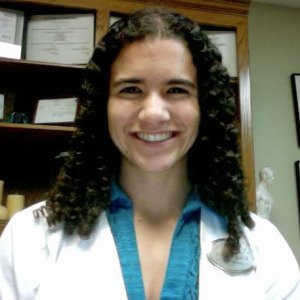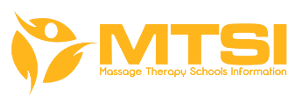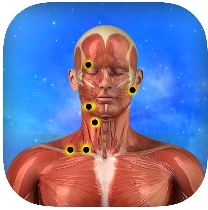
My name is Erica Olstein and I am the owner and operator of a medical practice called A Better U Healthcare in Ocala, Florida. A Better U Healthcare currently has two doctors of acupuncture and Oriental medicine, one massage therapist, and one podiatrist.
We specialize in musculoskeletal concerns, internal medicine, and mental and emotional disorders of all kinds. Among the four of us, we see patients both in and outside the office to suit the needs & comfort of our clients, which presently range from 3 years old to 98 years old. The four of us work together to provide a holistic approach to healthcare in an ever-aging, yet health-conscious population.
2. Tell us why you chose to go into acupuncture and at what point in your life did you decide to do so? What were you doing at the time? Where did you first hear about the acupuncture career? What factors influenced your decision? What were you looking to get out of this decision?
I chose to pursue acupuncture and Eastern medicine as a career after many years of dedicating my time to health education, even as a kid. Learning about health soon became a hobby and by the time I was at the University of Florida pursing my undergraduate degree, I was made aware of the practice of acupuncture and Eastern medicine.
From that point on, I not only utilized it for my own healthcare purposes, but decided to attend Dragon Rises College of Oriental Medicine in Gainesville, Florida for graduate school. Having run my practice for almost four years now, I am proud to say that I not only do what I am so passionate about, but I have the opportunity to impact the health of my community on a daily basis. There is no better feeling than enhancing the quality of life of those who surround you.
I decided to incorporate a massage therapist at A Better U Healthcare not only because of the high demand from our patients and the vast health benefits that massage therapy has to offer, but also because massage therapy greatly enhances the effects of the medical therapies we do at the office. Bringing a massage therapist on was a no-brainer and ultimately a great addition to an already thriving practice.
3. What were some of your questions and concerns before further pursuing your massage therapy goals? Talk about concerns with school and the profession itself.
One of my concerns with acupuncture & Eastern medical school initially was that the medical terminology was entirely different than the Western medical terminology that I was more familiar with. I soon found that Eastern medical terms were actually more simplified and fine-tuned to enable a deeper understanding of the principles which allow our body’s to function. I have never run into any concerns in regards to the acupuncture and Eastern medical profession itself.
4. What is your specialty and what are the top three contributing factors to your success today?
My specialties are musculoskeletal concerns, internal medicine, and mental and emotional disorders. As an Eastern medical primary care physician running a family practice, I see a wide range of disorders come into my office everyday ranging from arthritis and the common cold to depression and high cholesterol.
While my specialties may seem quite broad, it is very difficult to specialize in one condition simply because Eastern medicine sees the body as a whole unit instead of separate parts. Nearly all health conditions are seen as interrelated rather that separate problems. For instance, a problem that may seem like a one-dimensional musculoskeletal issue may have a deeper layer of emotional turmoil or an internal organ relationship.
The three factors that contribute most to my success today are my sincere passion for the wellness of others, my interest in expanding my knowledge of all things related to health, and my community’s involvement in their own path to health.
5. What do you like about your specialty? What do you like about what you do in general as a career? Why?
What I enjoy most about my three specialties is that they are so versatile and applicable in countless health conditions. I am not limited with which conditions I am able to treat or with which tools I am able to treat each patient with. In fact, oftentimes patients come in with one or more conditions that overlap my special areas of interest.
6. What do you not like about what you do? Why?
As with all jobs, there are some responsibilities that are more or less enjoyable. With no surprise, my endless paperwork is the most unpleasant. If I wish to keep seeing patients and do what I love, I have to continue to do paperwork. Keeping up with paperwork during the day can be challenging and time consuming, since I also juggle the many other aspects of running a business on a day-to-day basis.
7. If there were two things you could change about your work or the industry as a whole what would they be? Why would you change them? What would you change them to?
Approximately two percent of all Floridians have utilized acupuncture for an ailment. With that in mind, if there were two things I could change about the acupuncture and Eastern medical profession, I would change the way acupuncture is marketed to the community and the way the philosophy of how it works is explained to the public.
One of the biggest deterrents to people using acupuncture is what the media portrays. For example, most movies show numerous long, thick needles to stimulate their audience’s attention & elicit a reaction but rarely present an accurate view of what actually happens in real life. A more realistic portrayal would make people less hesitant to partake in new kinds of medical therapies.
Moreover, a more scientific explanation of acupuncture and Eastern medicine to our community is important. We cannot ignore the fact that people in the United States are conditioned to need to know how things work scientifically in their body. Describing seemingly loose and arbitrary Eastern medical concepts does not usually satisfy their questions and concerns.
8. How long do you plan to practice and what do you plan to do after?
I plan to practice acupuncture and Eastern medical for the remainder of my working years. Even after I retire, I plan to volunteer my time and skills to those in need.
9. Do you currently have another job or business whether full time or part time? Tell us a bit more about it and how you are able to juggle that with your acupuncture career?
Although I always have the entrepreneurship itch, scratching just one is more than enough. Running my own medical practice is a full time job and there is no time to add more to my to-do list.
10. What are some mistakes you made in your career pursuit that you’d like to warn other students about so they can learn from your experience and avoid it?
I have not run into any mistakes yet but I will share my two rules of thumb that I use to avoid mistakes. The first is to keep it simple, no matter what it is you decide to do. The second is to focus on what you know and what you are good at, instead of diversifying too much into things you can only partially devote your time and knowledge to.
11. What would you advise someone who is looking at acupuncture therapy schools? What do you recommend they look for and how? How do you recommend they determine whether the school is the right one for them?
All acupuncture schools are different, and so are the many teachers who teach in each one. Their ‘school of thought’ in relation to how to treat a patient can vary widely and it is important that you find it a relevant, useful, and effective means to practicing the medicine.
A great way to gain insight is to tour the school, talk with students and teachers, and to become a patient at the school’s student clinic to see the end result of students after going through the school’s educational program.
12. What do you recommend for someone who wants to go to acupuncture school but cannot afford it?
For those who would like to attend acupuncture school but have financial burdens, there are student loans that allow you to complete a full Eastern medical degree. Upon working, it does not take much time to recover the loaned money.
13. What are your two biggest points of advice for an aspiring acupuncturist today? What should they do/not do? What should they think about and consider?
One point of advice for an aspiring acupuncturist today is to realize that the acupuncture state laws nationwide are currently in a constant flux and ensuring that your state laws are acceptable for you to work under is an important aspect to your ease of work and a gives a good sense of your liability and responsibility as a healthcare professional. The second point of advice is to do your line of work with passion. Passion feeds success.
14. Any open thoughts / comments – anything else that you’d like to share about yourself, the acupuncture industry, profession, future, etc.? If nothing, make one prediction for the future of acupuncture?
Knowing how much a healthy lifestyle has infused our society in the United States, if I could make one prediction, it would be that everyone will eventually utilize alternative medicine at some point or another in their lifetime. The chances of the average person incorporating acupuncture into their lifestyle regimen will become increasingly more probable.
15. What is your passion outside of acupuncture? What are your hobbies and interests which you pursue when you are not working? Tell us why you enjoy what you enjoy.
My interests outside of acupuncture are everything related to exercise, the sun, and the beach. I am happiest when I am outside and moving around having fun.
Erica Olstein is a Doctor of Oriental Medicine, an Acupuncture Physician, a Primary Care Physician and a Cold Laser Therapist. You can connect with her on Facebook and LinkedIn.








Leave a Reply